20th Chess Olympiad

The 20th Chess Olympiad, organized by FIDE and comprising an open[1] team tournament, as well as several other events designed to promote the game of chess, took place between September 18 and October 13, 1972, in Skopje, Yugoslavia (present-day Macedonia).
For the first time, the Soviet team only comprised 5 GMs and one IM (Savon). Since Bobby Fischer had beaten Spassky earlier in the year, the team wasn't led by the current world champion - also a first. It did, however, feature three previous (Smyslov, Tal, and Petrosian) as well as one future champion (Karpov). The team still lived up to expectations, though, and won their eleventh consecutive gold medal, with Hungary and Yugoslavia taking the silver and bronze, respectively.
Before the Soviet team could achieve a victory, there was some controversy. In the 4th round of Final Group A, the Soviets played a match against the team from Bulgaria. A game between Victor Korchnoi and Georgi Tringov was adjourned after 41 moves with Tringov to seal his next move. At this Olympiad, sealed moves were written on a separate piece of paper, not the player's score sheet. Tringov rejected this way of sealing his move and instead wrote it on his score sheet.
When the game was resumed, the arbiter opened the envelope. In the envelope was Korchnoi's score sheet but not the one belonging to Tringov. The arbiter ruled the game a forfeit win for Korchnoi. The Bulgarian team captain instituted protest proceedings but an arbitration committee upheld the arbiter's ruling.
After the Olympiad was over, it was learned that Tringov had absentmindedly placed his score sheet in his pocket. Tringov discovered his mistake several days after his forfeit but was too ashamed to admit his mistake to the organizers of the Olympiad.[2]
In Final B, the Albanian team refused to play Israel and withdrew after round 11. Their matches were regarded as "friendlies" and didn't count in the overall standings.
Jens Enevoldsen represented Denmark at his 11th and final Olympiad, 39 years after his first appearance at Folkestone 1933. Both records at the time (although both have since been beaten by Lajos Portisch).
This Olympiad was the first major success for the Benko Gambit, named after Hungarian-American master Pal Benko. In sixteen games, Black players scored ten wins and six draws with the opening.
Results
Preliminaries
A total of 63 teams were divided into eight preliminary groups of seven or eight teams each, from which the top two advanced to Final A, no. 3-4 to Final B etc. Unlike the last few tournaments, preliminary head-to-head results were not carried over to the finals, so each teams met one other team twice. All preliminary groups and finals were played as round-robin tournaments. The results were as follows:
- Group 1: 1. Soviet Union, 2. Denmark, 3. Belgium, 4. Cuba, 5. Finland, 6. Dominican Republic, 7. Luxembourg.
- Group 2: 1. Yugoslavia, 2. Switzerland, 3. Peru, 4. England, 5. Brazil, 6. Japan, 7. Syria, 8. Cyprus.
- Group 3: 1. Hungary, 2. Poland, 3. Norway, 4. Indonesia, 5. Scotland, 6. Bolivia, 7. Morocco, 8. Lebanon.
- Group 4: 1. West Germany, 2. Argentina, 3. Iceland, 4. Greece, 5. New Zealand, 6. Mexico, 7. France, 8. Guernsey.
- Group 5: 1. Czechoslovakia, 2. Spain, 3. Mongolia, 4. Israel, 5. Portugal, 6. Ireland, 7. Hong Kong, 8. Malaysia.
- Group 6: 1. East Germany, 2. Sweden, 3. Canada, 4. Italy, 5. Wales, 6. Turkey, 7. Singapore, 8. Malta.
- Group 7: 1. Bulgaria, 2. Netherlands, 3. Albania, 4. Colombia, 5. Australia, 6. Puerto Rico, 7. Iraq, 8. Andorra.
- Group 8: 1. United States, 2. Romania, 3. The Philippines, 4. Austria, 5. Tunisia, 6. Iran, 7. Faroe Islands, 8. British Virgin Islands.
Finals
Final A # Country Players Average
rating[3]Points MP Head-
to-head1  Soviet Union
Soviet Union Petrosian, Korchnoi, Smyslov, Tal, Karpov, Savon 2635 42 2  Hungary
Hungary Portisch, Bilek, Forintos, Ribli, Csom, Sax 2531 40½ 3 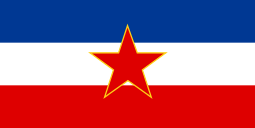 Yugoslavia
Yugoslavia Gligorić, Ivkov, Ljubojević, Matanović, Matulović, Rukavina 2543 38 4  Czechoslovakia
Czechoslovakia Hort, Smejkal, Filip, Jansa, Přibyl, Trapl 2534 35½ 5  West Germany
West Germany Hübner, Darga, Pfleger, Hecht, Kestler, Dueball 2540 35 6 .svg.png) Bulgaria
Bulgaria Bobotsov, Tringov, Radulov, Padevsky, Peev, Bohosjan 2459 32 7 .svg.png) Romania
Romania Gheorghiu, Ciocâltea, Ghiţescu, Ungureanu, Ghizdavu, Partoş 2466 31½ 8  Netherlands
Netherlands Donner, Ree, Zuidema, Timman, Hartoch, Enklaar 2465 29 13 2½ 9  United States
United States Kavalek, Byrne, Benko, Bisguier, Martz, Kane 2515 29 13 1½ 10 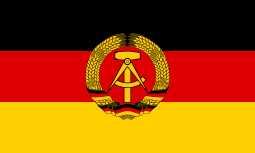 East Germany
East Germany Uhlmann, Malich, Knaak, Liebert, Schöneberg, Vogt 2490 27½ 11 .svg.png) Spain
Spain Pomar, Díez del Corral, Medina, Torán, Bellón López, Visier Segovia 2434 26 12  Poland
Poland Schmidt, Bednarski, Pytel, Sznapik, Filipowicz, Sydor 2410 24½ 13  Denmark
Denmark Hamann, Jakobsen, Sloth, Holm, Enevoldsen, Pedersen 2428 23 14  Argentina
Argentina Rossetto, García, Rubinetti, Emma, Debarnot, Hase 2418 22½ 9 15  Sweden
Sweden Andersson, Jansson, Ornstein, Liljedahl, Olsson, Uddenfeldt 2399 22½ 8 16  Switzerland
Switzerland Hug, Lombard, Bhend, Schaufelberger, Wirthensohn, Gereben 2383 21½ Final B # Country Average
ratingPoints MP 17  England
England 2413 37 18  Israel
Israel 2353 36½ 19  Canada
Canada 2443 33 20  Philippines
Philippines 2365 31½ 21  Norway
Norway 2404 30½ 22  Cuba
Cuba 2383 30 16 23  Austria
Austria 2360 30 15 24  Iceland
Iceland 2419 29 25  Colombia
Colombia 2361 27 26  Indonesia
Indonesia 2318 25½ 27  Italy
Italy 2358 25 28 .svg.png) Mongolia
Mongolia 2330 24½ 29 .svg.png) Greece
Greece 2273 21 30 .svg.png) Belgium
Belgium 2298 20½ 31  Peru
Peru 2303 19 -  Albania
Albania 2245 - Final C # Country Average
ratingPoints MP Head-
to-head32  Australia
Australia 2370 45 33  Finland
Finland 2288 42½ 34  Scotland
Scotland 2273 39 35  Iran
Iran 2250 37½ 36 .svg.png) Brazil
Brazil 2236 25½ 37  Portugal
Portugal 2285 32½ 38  Turkey
Turkey 2261 31 39  Ireland
Ireland 2200 28½ 15 40 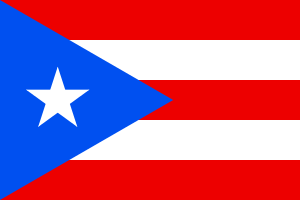 Puerto Rico
Puerto Rico 2280 28½ 12 41  Mexico
Mexico 2213 26½ 12 3 42 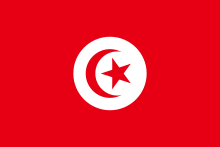 Tunisia
Tunisia 2225 26½ 12 1 43 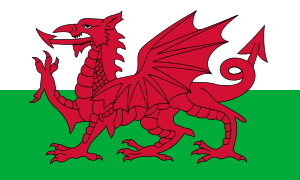 Wales
Wales 2248 26½ 10 44  New Zealand
New Zealand 2235 25 45  Dominican Republic
Dominican Republic 2200 21½ 46 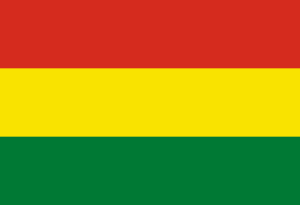 Bolivia
Bolivia 2200 19 47  Japan
Japan 2220 15½ Final D # Country Rating Points MP 48  France
France 2276 46½ 49  Singapore
Singapore 2263 42½ 50  Malta
Malta 2213 32½ 51 .svg.png) Hong Kong
Hong Kong 2200 30½ 52  Lebanon
Lebanon 2200 30 53  Luxembourg
Luxembourg 2214 29½ 54 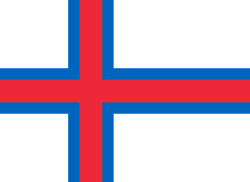 Faroe Islands
Faroe Islands 2200 29 55  Syria
Syria 2200 28 56  Cyprus
Cyprus 2200 27½ 57  Morocco
Morocco 2205 26 58 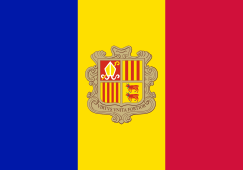 Andorra
Andorra 2200 24 59  Malaysia
Malaysia 2200 23½ 60 .svg.png) Guernsey
Guernsey 2200 20½ 9 61 %3B_Flag_of_Syria_(1963-1972).svg.png) Iraq
Iraq 2200 20½ 5 62 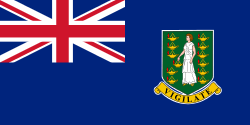 British Virgin Islands
British Virgin Islands 2200 10½
Individual medals
- Board 1:
 Robert Hübner 15 / 18 = 83.3%
Robert Hübner 15 / 18 = 83.3% - Board 2:
 Viktor Korchnoi 11 / 15 = 73.3%
Viktor Korchnoi 11 / 15 = 73.3% - Board 3:
 Ljubomir Ljubojević 15½ / 19 = 81.6%
Ljubomir Ljubojević 15½ / 19 = 81.6% - Board 4:
 Mikhail Tal 14 / 16 = 87.5%
Mikhail Tal 14 / 16 = 87.5% - 1st reserve:
 Anatoly Karpov 13 / 15 = 86.7%
Anatoly Karpov 13 / 15 = 86.7% - 2nd reserve:
 Aldo Haïk 11 / 12 = 91.7%
Aldo Haïk 11 / 12 = 91.7%
Best game
The Best Game prize went to Werner Hug (Switzerland) - Vlastimil Hort (Czechoslovakia) from Final A.
References
- ↑ Although commonly referred to as the men's division, this section is open to both male and female players.
- ↑ Keene, Ray; Levy, David (1973). Chess Olympiad 1972. Doubleday & Company. pp. 68–69.
- ↑ This was the first Olympiad after the ELO rating system was introduced, so many players on smaller teams were still unrated. For the purpose of calculating team averages, they were given provisional ratings of 2200, equivalent to that of a Candidate Master.
External links
- 20th Chess Olympiad: Skopje 1972 OlimpBase
Coordinates: 42°00′14″N 21°27′08″E / 42.003812°N 21.452246°E